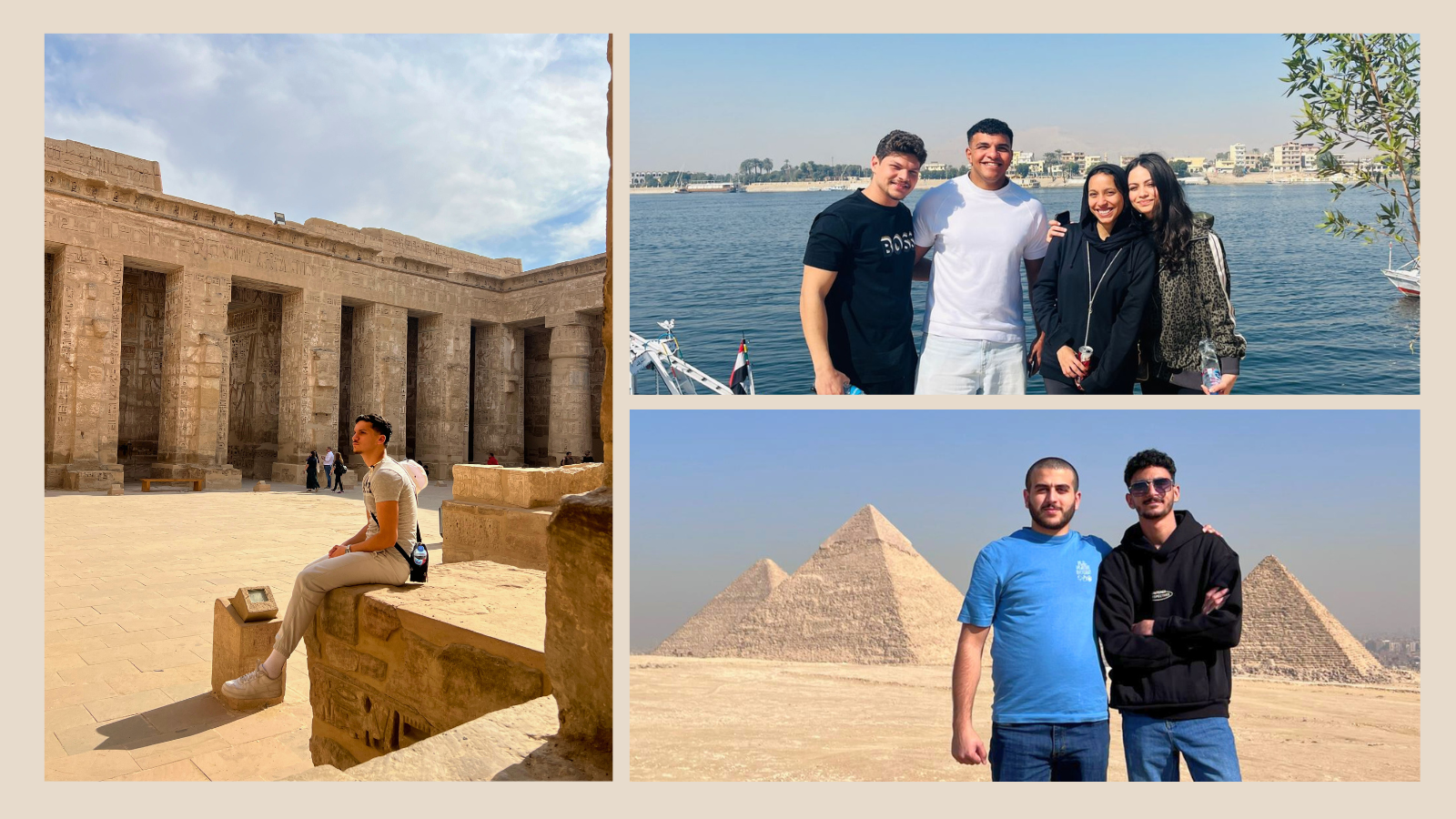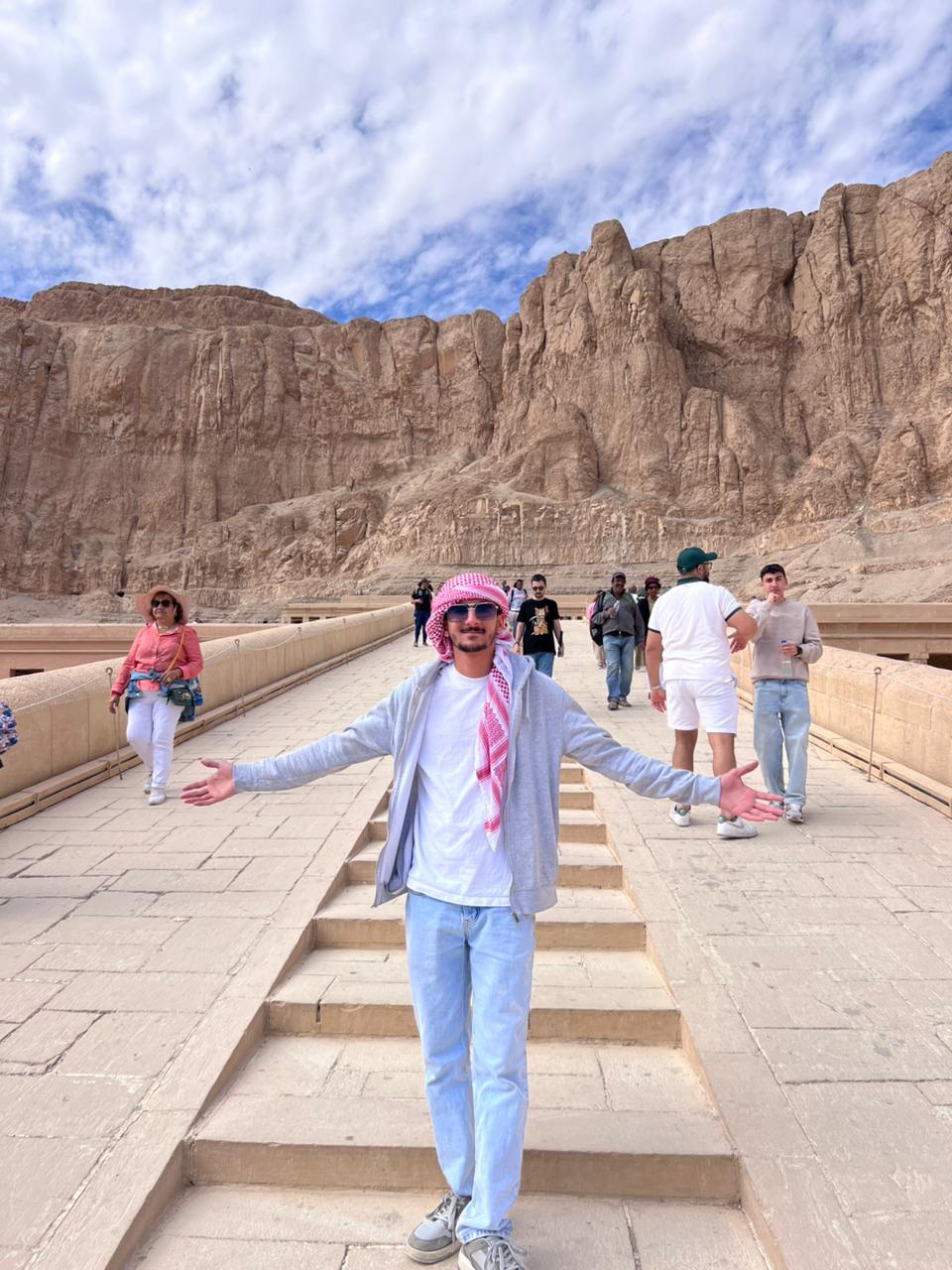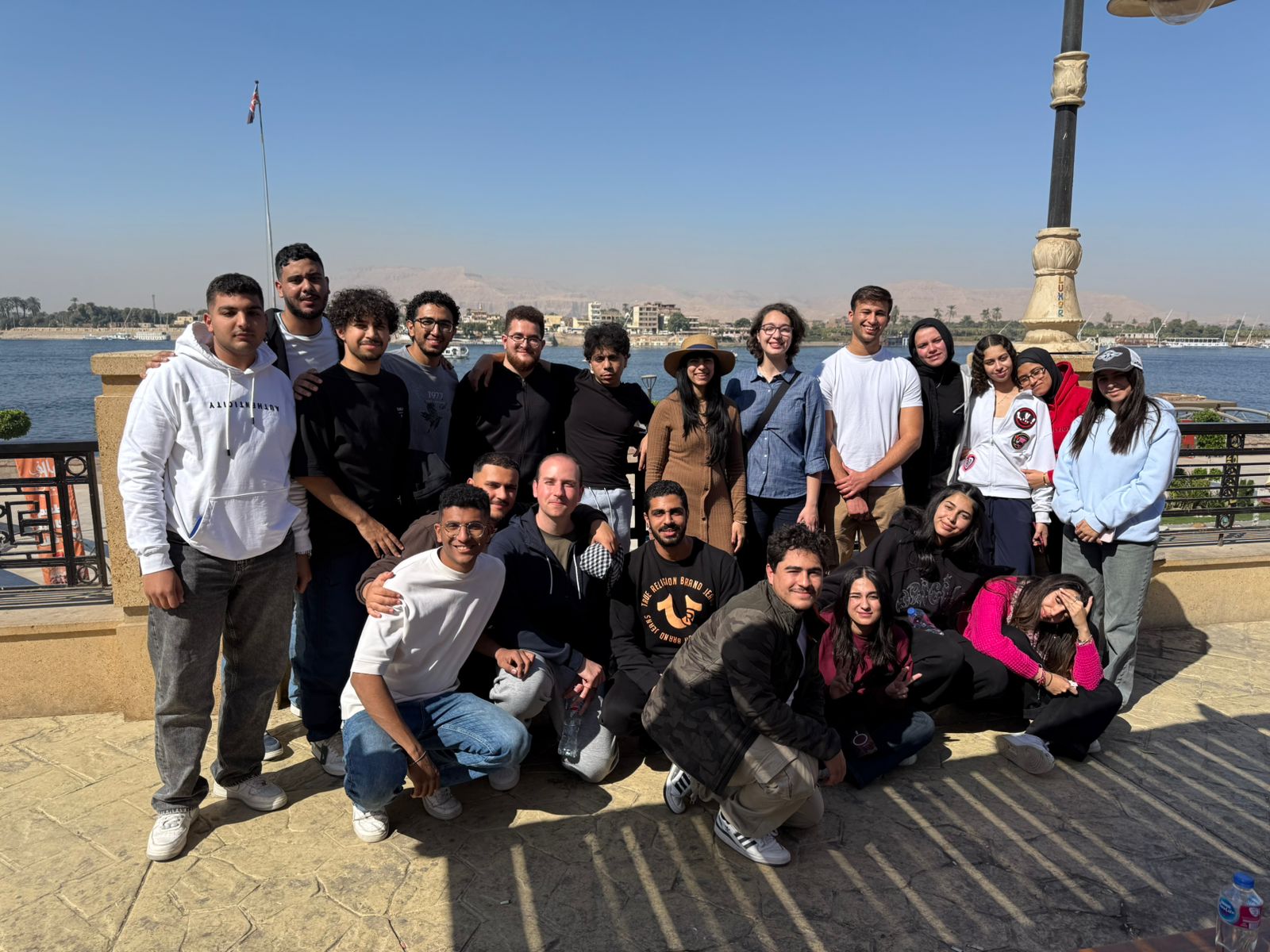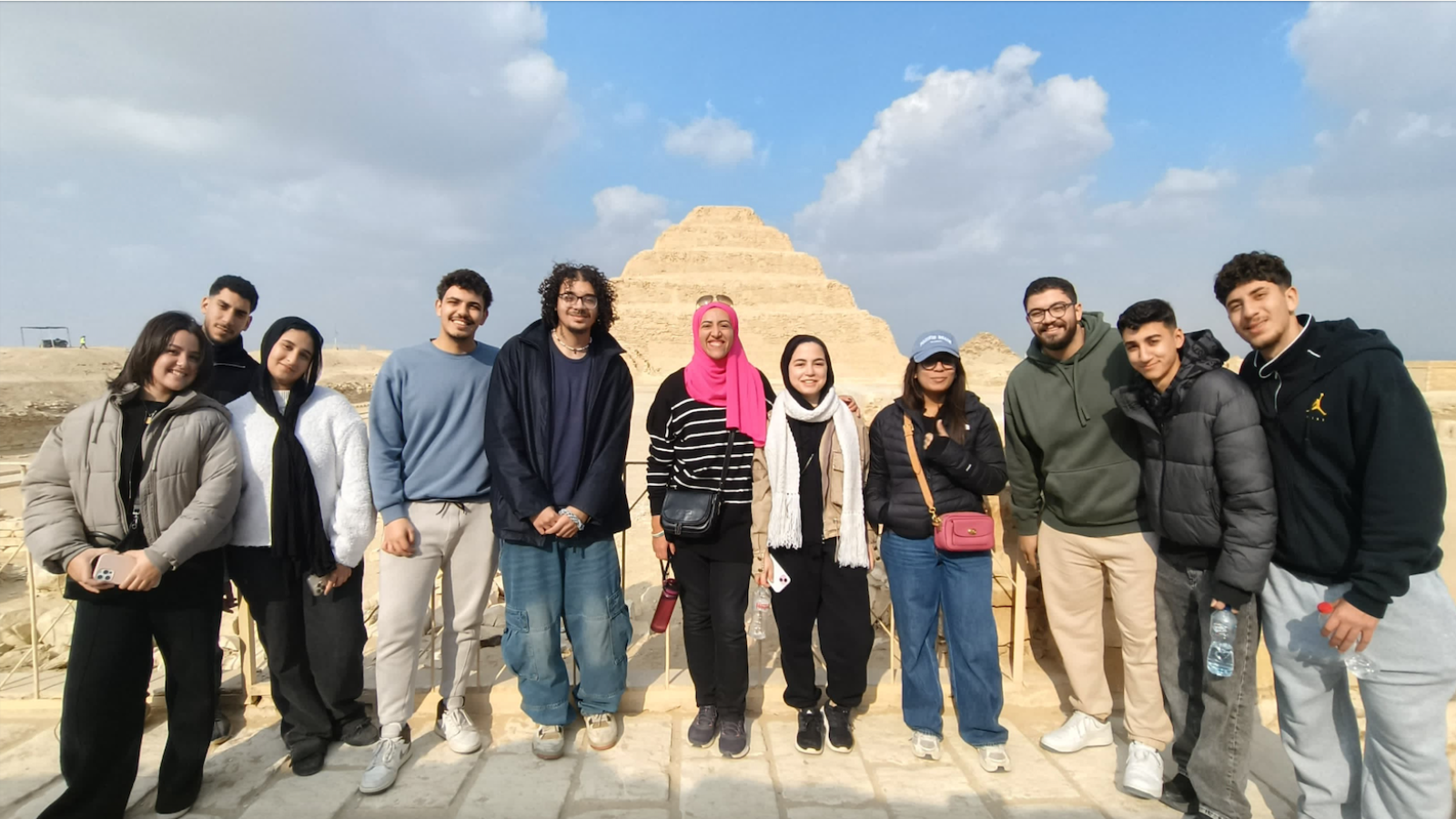Da Zanbokom: An AUC Climate Play About Egypt
As major climate issues continue to affect people across Egypt’s diverse regions, Jillian Campana, theater professor and associate dean for undergraduate studies and research, developed a set of plays that reflect these environmental realities. The plays will be performed across AUC’s garden on February 12, 13, 16 and 17, with free entry each night.
Da Zanbokom (It Is Our Fault) consists of five short plays, each set in a different location in Egypt and dealing with a distinct environmental issue affecting the country. Topics range from water scarcity in Aswan and flooding in Alexandria to pollution in the Red Sea and gentrification in Port Said.
Meanwhile, the plays probe the audience to reflect on their role in climate change. “There are small things we can all do every day to help, but most of us don’t take any action because we mistakenly think only major innovations will make a difference,” said Campana.
Campana was inspired to pursue this project because she believes her role as an artist gives her a unique ability to humanize data in a way that regular people can relate to. “While scientists provide crucial data and technological innovations, solving this global challenge requires collaboration across disciplines. Artists, humanists, policymakers, educators, community leaders and activists all play vital roles. Artists, in particular, are able to humanize the data in a way that connects to everyday people,” she said.
“We hope that by watching the performances, audiences will consider their own behaviors and practices and reflect upon ways they can help educate those around them to engage in more sustainable behaviors.”
Over the summer, Campana worked with experts to identify major climate issues that affect people in different regions across Egypt. She then commissioned 10 new plays, five of which will be performed at AUC in the upcoming shows, exploring how these environmental issues impact daily life. The playwrights, including Campana, collaborated with AUC faculty members Anwar ElNaser, Fayrouz Ashour, Ramy Aly and Rania Siam to understand the depth and specificity of these issues and how they impact daily life.
The play is site-specific, meaning that the locations of the plays mirror the settings of the stories. Audiences will gather in the School of Humanities and Social Sciences plaza between 6:30 and 7:00 pm on the nights of the shows. They will be assigned, in small groups, to a specific guide who will walk them to each location and provide details about the stories along the way.
“We hope that by watching the performances, audiences will consider their own behaviors and practices and reflect upon ways they can help educate those around them to engage in more sustainable behaviors,” Campana said. “For the 43 students, many faculty and alumni involved in Da Zambokom it certainly has made an impact already!”
The five plays are:
- Just When You Thought It Was Safe to Go Back in the Winter (English)
- Snowball in Heaven (English)
- Very Environmental (Arabic)
- The Nile in Cairo Is Green (Arabic)
- The Graduation (Arabic and English)













